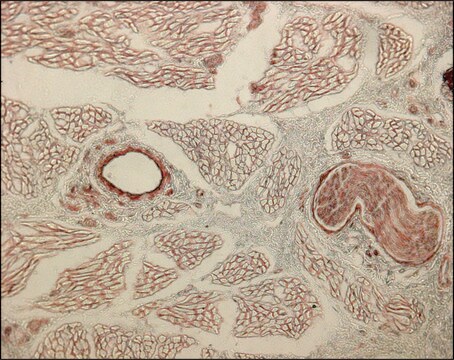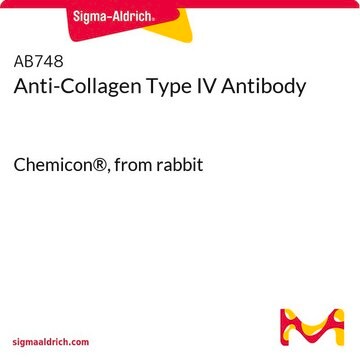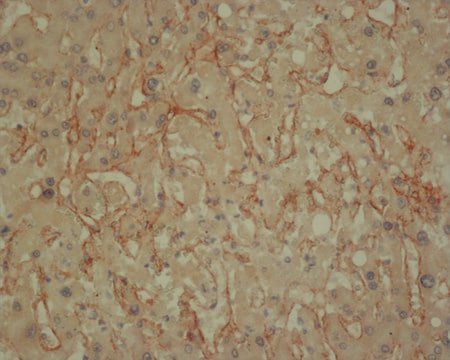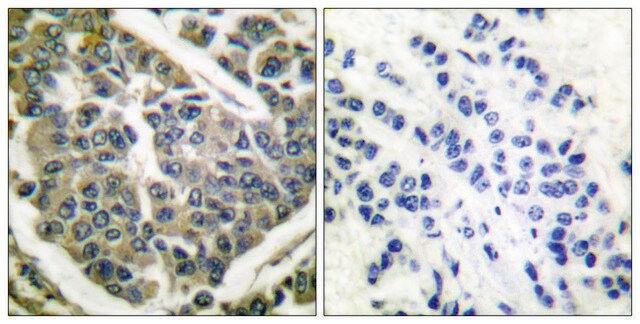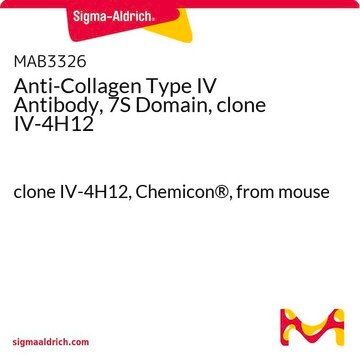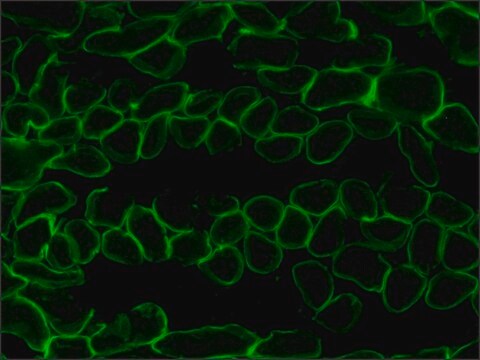AB769
Anti-Collagen Type IV Antibody
Chemicon®, from goat
Synonym(s):
Anti-Anti-BSVD, Anti-Anti-BSVD1, Anti-Anti-COL4A1s, Anti-Anti-PADMAL, Anti-Anti-RATOR
About This Item
Recommended Products
biological source
goat
Quality Level
antibody form
affinity purified immunoglobulin
antibody product type
primary antibodies
clone
polyclonal
purified by
affinity chromatography
species reactivity
human, bovine, mouse
manufacturer/tradename
Chemicon®
technique(s)
ELISA: suitable
dot blot: suitable
immunocytochemistry: suitable
immunohistochemistry: suitable
suitability
not suitable for Western blot
not suitable for immunohistochemistry (Paraffin)
NCBI accession no.
UniProt accession no.
shipped in
wet ice
target post-translational modification
unmodified
Gene Information
human ... COL4A1(1282)
Specificity
Immunogen
Application
ELISA: 1:1000-1:4000
Indirect immunohistochemistry (frozen sections only): 1:10-1:40
Immunocytochemistry 1:10-1:20
Optimal working dilutions must be determined by the end user.
Cell Structure
ECM Proteins
Physical form
Storage and Stability
Analysis Note
Positive Control: Kidney, muscle, tendon spleen tissue
Negative Control: Neurons/glia
Other Notes
Legal Information
Disclaimer
Not finding the right product?
Try our Product Selector Tool.
Signal Word
Danger
Hazard Statements
Precautionary Statements
Hazard Classifications
Repr. 1B
Storage Class Code
6.1D - Non-combustible acute toxic Cat.3 / toxic hazardous materials or hazardous materials causing chronic effects
WGK
nwg
Flash Point(F)
Not applicable
Flash Point(C)
Not applicable
Certificates of Analysis (COA)
Search for Certificates of Analysis (COA) by entering the products Lot/Batch Number. Lot and Batch Numbers can be found on a product’s label following the words ‘Lot’ or ‘Batch’.
Already Own This Product?
Find documentation for the products that you have recently purchased in the Document Library.
Customers Also Viewed
Our team of scientists has experience in all areas of research including Life Science, Material Science, Chemical Synthesis, Chromatography, Analytical and many others.
Contact Technical Service